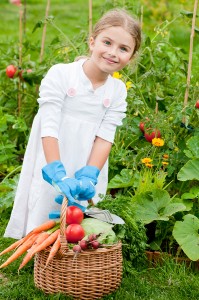How fruit flies proved Dr. Oz wrong about organic produce
 Dr. Mehmet Oz caused quite a stir with his December 2012 Time Magazine cover story on conventional versus organic produce.
Dr. Mehmet Oz caused quite a stir with his December 2012 Time Magazine cover story on conventional versus organic produce.
In “Give (Frozen) Peas a Chance – and Carrots Too,” he shocked many organic food fans, myself included, by saying organic food is no healthier than the frozen conventional vegetables in the supermarket.
Oz said, “nutritionally speaking, there is little difference between the farmer’s- market bounty and the humble brick from the freezer case.”
Nutritionally, he was right. But in terms of overall health, he was wrong. Why? Because he didn’t look at the right studies.
The research on organic food
Dr. Oz based his position on a Stanford University study which analyzed over 200 research papers comparing the nutritional values of organic versus conventionally grown food; Stanford’s conclusion was that organic food isn’t any healthier.
The problem with the Stanford study is that it defined healthy as “has more nutrients.”
Yes, conventional and organic produce rank the same on nutrients. But there’s more to health than nutrients!
A Southern Methodist University study found that fruit flies that ate organic foods did better in almost every health measure the researchers tracked:
- living longer,
- laying more eggs,
- better resistance to stress and
- more energy.
The other problem with the Stanford research is that they looked at outdated studies on pesticides.
Charles Benbrook, Ph.D, a research professor at Washington State University, also weighed in. Using government data on pesticide toxicity, Dr. Benbrook found a 94% reduction in health risks by eating organic instead of conventionally grown foods.
Organic produce simply has fewer toxins — in particular fewer pesticides, which are known to cause food allergies.
Organic foods are also not genetically modified, which is a whole other can of worms that I won’t address here other than to say: avoid GMOs at all costs!
And I’m going out on a limb here to say that there may be other energetic qualities to the food we eat that cannot yet be measured by scientists. The closer we can get to food as Mother Nature intended it, the healthier we’ll be.
An apple a day…
I buy organic produce as much as possible. And I’m delighted to say that Meijer, my local grocery chain here in the Midwestern U.S., is quite responsive to customer demands and is carrying more and more organic produce.
Even my favorite apples, Granny Smith, are now available as organic. I discovered them in the store this fall for the first time ever.
I had actually stopped eating apples because I couldn’t find any that were organic. Now I’m eating apples again. The more we buy organic produce, the more it will become available.
Which reminds me of the old adage: “An apple a day keeps the doctor away.” Especially if it’s organic.
Sources for this post:
http://www.prevention.com/food/healthy-eating-tips/what-you-need-know-about-organic-food
http://content.time.com/time/magazine/article/0,9171,2129811,00.html
Molly Larkin is the co-author of the international best-seller “The Wind Is My Mother; The Life and Teachings of a Native American Shaman” and other books on health. She is passionate about helping people live life to their fullest potential through her classes, healing practice and blog at www.MollyLarkin.com

